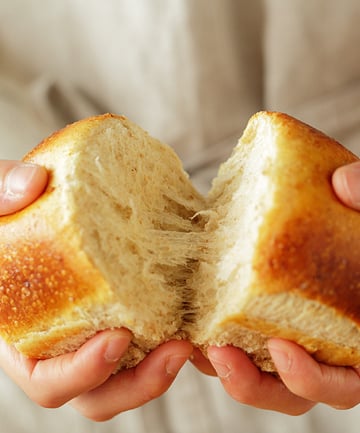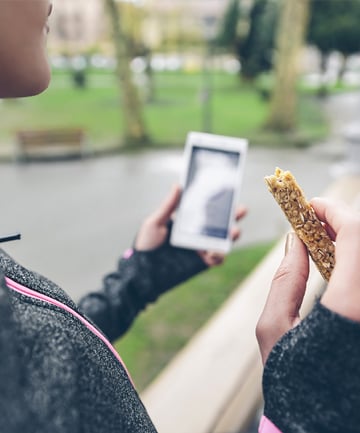When you're trying to lose weight quickly, it's easy to fall prey to bad diet tips — call it a case of hearing what you want to hear. Still, you should always exercise caution: Expert dietitians suggest that not all diet trends are what they're cracked up to be... and some can even lead to some serious health consequences, especially if you aren't careful.
It can be tough to know which weight loss tips are legit and which aren't, so we spoke to four registered dietitians about all the so-called dieting hacks that you should probably steer clear of. Keep reading to learn more about common dieting misconceptions as you begin to map out your weight loss goals.
Image via Imaxtree
"Many people are so anxious to lose weight that they are quick to stop eating sugar or carbohydrates all at once," says registered dietitian Shana Minei Spence, MS, RDN, CDN, and founder of The Nutrition Tea. This is easier said than done and can quickly backfire: As she explains, if you go cold turkey on something you love, your body may actually start craving it even more. So... maybe taper off that bread habit, instead of trying to give it all up at once.
Image via sot/DigitalVision/Getty
Meal replacements might seem like a quick fix, but that's not always the case: "This usually doesn't work because eating a bar is not the same thing as eating a meal with all food components that will leave you satisfied," warns Spence. After a while, she says you will start to crave wholesome foods, which could in turn lead to bingeing. In addition, she notes that replacement drinks don't always cut it, since we naturally crave the action of chewing — and you know what that means: even more hunger pangs.
Image via Westend61/Getty
By similar logic, skipping meals may also trip up your weight loss journey. "Skipping meals may seem like it's a good way to cut calories but in reality, it causes our metabolism to slow down," says registered dietitian Carly Johnston, MS, RDN, LDN, owner of New England Nutrition Advisors. Instead, she says you're actually better off eating every four hours to ensure you're keeping your metabolism revved... and your hunger in check.
Image via Westend61/Getty
"We should not eat and go straight to bed, but there are some times floating around in the media like not eating after six or seven that people try to follow," says Spence. That leaves a good several hours until bedtime if you're a night owl — and Spence warns that if you stop eating too early, you're probably going to get hungry (which could in turn lead to some unwanted late night snacking). Instead, be sure to adjust your meal and snack times to fit your schedule.
Image via Tetra Images/Getty









